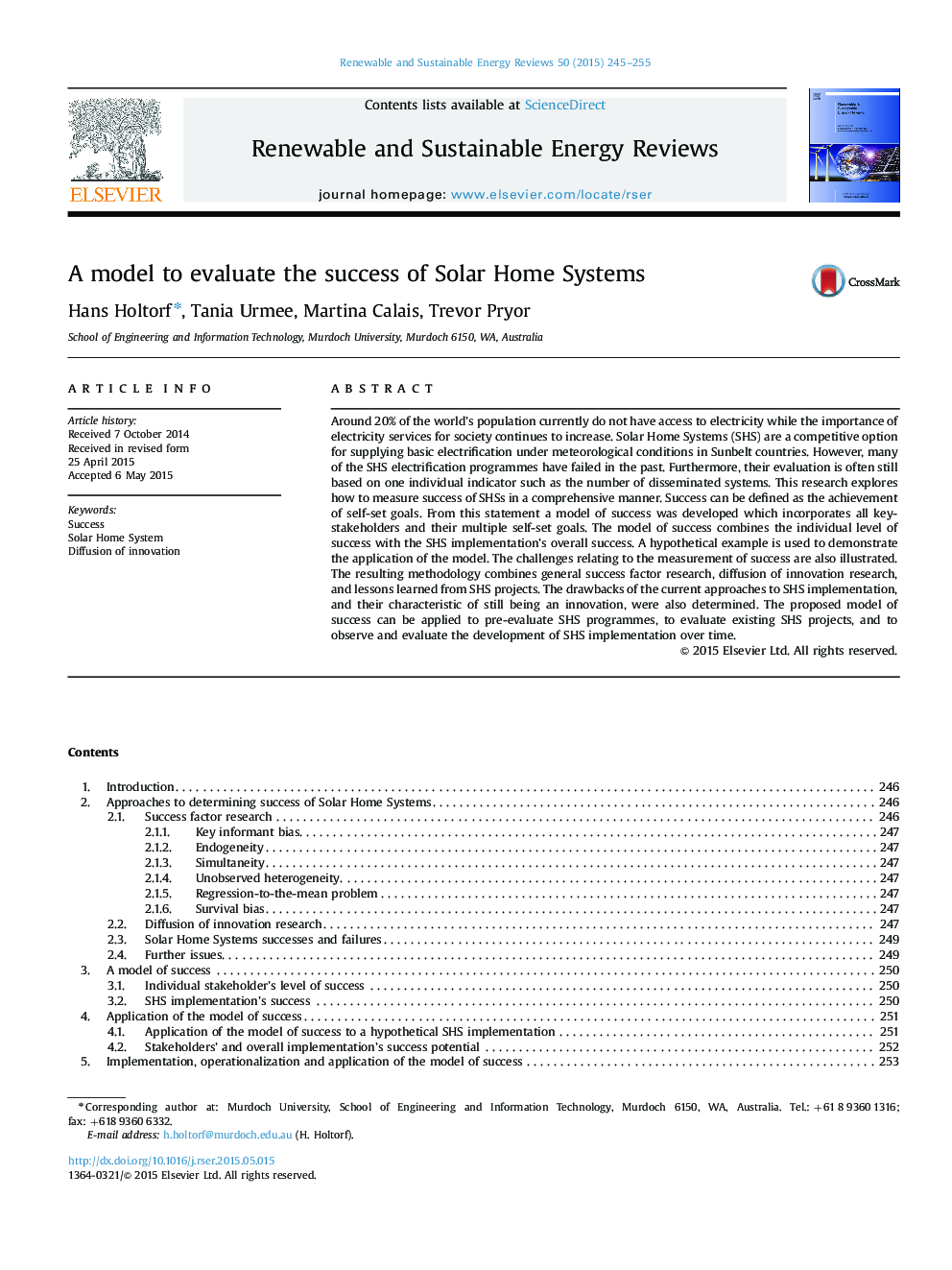| Article ID | Journal | Published Year | Pages | File Type |
|---|---|---|---|---|
| 8116039 | Renewable and Sustainable Energy Reviews | 2015 | 11 Pages |
Abstract
Around 20% of the world's population currently do not have access to electricity while the importance of electricity services for society continues to increase. Solar Home Systems (SHS) are a competitive option for supplying basic electrification under meteorological conditions in Sunbelt countries. However, many of the SHS electrification programmes have failed in the past. Furthermore, their evaluation is often still based on one individual indicator such as the number of disseminated systems. This research explores how to measure success of SHSs in a comprehensive manner. Success can be defined as the achievement of self-set goals. From this statement a model of success was developed which incorporates all key-stakeholders and their multiple self-set goals. The model of success combines the individual level of success with the SHS implementation's overall success. A hypothetical example is used to demonstrate the application of the model. The challenges relating to the measurement of success are also illustrated. The resulting methodology combines general success factor research, diffusion of innovation research, and lessons learned from SHS projects. The drawbacks of the current approaches to SHS implementation, and their characteristic of still being an innovation, were also determined. The proposed model of success can be applied to pre-evaluate SHS programmes, to evaluate existing SHS projects, and to observe and evaluate the development of SHS implementation over time.
Related Topics
Physical Sciences and Engineering
Energy
Renewable Energy, Sustainability and the Environment
Authors
Hans Holtorf, Tania Urmee, Martina Calais, Trevor Pryor,
